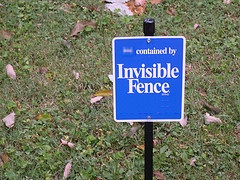Dear Annie,

It seems like whenever I grant a special treat to my 8-year-old son, it makes everyone more miserable than if there were no treat at all. For example, if I surprise him with the statement that I'm making cookies for dessert, then he quickly starts complaining that he wants them for snack instead, or when I present the cookie, he complains that he wants two instead of one, or that he wishes they were a different kind, or... you get the picture.
This kind of behavior occurs whether it is a surprise, or a planned event. For example, he was thrilled that we were going to get a movie as a treat for everyone doing their jobs well, until he found out that we were not getting the movie he wanted (not age-appropriate).
I don't think he's greedy, or bitter due to deprivation - although he might say that. Some other traits that may fill in the picture: He has trouble bouncing back from both disappointment and activities that are especially enjoyable for him. Structure is important to him, and he gets anxious easily, so he does better when expectations are very clear (especially at school though they say he's in the normal range).
With his younger brother it is a different story and from my own childhood, I really appreciated this kind of incentive. Now for our family, doing something fun or special seems to make everything worse.
What do you think is going on, and what can I do? - Frustrated Mom
Dear Frustrated Mom,
One approach to the cookie ingratitude is to say, "Fine then, no cookies for you." And I could hear this coming out of my mouth if I was feeling like entitlement was the culprit. But with all you describe about your son, I think we would do him the most good by helping him figure out what's going on.
So let's see if we can look beyond the gripe. Sometimes we gripe about cookies as the most convenient outlet for a different unresolved trigger - raining outside, brother troubles, school stress, tiredness, etc. If the griping seems out of place, it may help to play detective to see if something else is going on.
You also state that structure is very important to your son and that lack of structure causes him anxiety. Surprises are, by their nature, the opposite of structure. So while the surprise may be pleasant, that temporary free-falling feeling may trigger his anxiety. His trying to take control: Snack vs dinner, 2 vs 1, this kind vs that kind, could be his way managing his anxiety. Some of the other examples like struggling to bounce back from both disappointment and great fun would also fit into that temporarily unstructured transition.
With anticipated events, it sounds like your son is filling in details with concrete ideas of what the event will look like - creating a structured picture. When his picture meets reality he now has to synthesize the two images causing another free-fall.
The most important thing you can do is help him learn about his thoughts and emotions and assist him in finding strategies for handling his anxiety while continuing to stretch his comfort zone. If you want more specifics on HOW to do that - keep reading.
3 Steps for Teaching
1.) At a time it isn't happening, have the Big Conversation to explain your concern and frustration. Use examples like the cookies, the movie, ending a fun activity, or being disappointed. Explain your concerns about his not having more happiness. This is also a good opportunity to add that you need to be treated better because you are a good person and deserve respect.
Paint a picture of a child who can get better at these skills. Find examples of situations where he handles this better. Go in curiously. See how much he is aware of his reactions, whether he sees times he does this better, whether he understands his thinking and would like to change anything. Taking the direction from this talk see if he has any ideas on how he could change and what you could do to support him.
2.) Model reasonable emotions and share your thinking process out loud. For some kids, they really need to see/hear other ways of thinking. Let him hear how you think about good surprises that happen in your life, and how you think through your own anxiety.
3.) Teach strategies for checking and dealing with his reactions and anxiety - some suggestions are playing detective to uncover the thoughts that led him to his reaction, breaking things down, challenging him and brainstorming alternative reactions for next time, and roleplaying. Preventative discussions about upcoming events, and helping him 'keep the door open' for things going differently can also help. And of course giving him control in as many situations as possible (without being held hostage) can help as well.
3 Steps for Intervening during an interaction:
1.) Mirror and optimistically notice his reaction (breaking it down to find the good part):
Mom: Honey I'm making cookies for dessert.
Son: I don't want them for dessert, I want them as a snack.
Mom: So you like the cookies idea, you just would rather have them as a snack. (Or: So you liked the movie idea until you learned that you weren't going to get that movie. Now you're disappointed.)
2.) Give him the version that you had hoped he would see:
"Well I was hoping that me making cookies would make you feel loved." (Or: I was hoping that getting a movie would feel like a treat.)
3.) Resolution Options:
A.) Empathize and allow him to feel his disappointment but do not change your plans. "I'm sorry that it's not exactly what you wanted."
B.) If you think he can stretch: Empathize THEN Challenge. "I know you would prefer the cookies now. Do you think you'll be able to handle the wait?" or "Is there some other way you can look at this so you can appreciate the treat?" If he says 'No'. Go back to A.
C.) If you feel he has a legitimate point and he respects that it's your choice: Power share. Don't placate him if he is being abusive or just so you avoid a melt down but, especially if he is being respectful, allow him to have influence over a third way solution.
Between incidents, continue teaching and help him notice if any of his reactions are improving. For further reading, I like the book The Explosive Child by Ross W. Greene. Some books I recommend for children on optimism and resiliency can be found under the Parenting Resources section.
Please let me know if that helps.
Annie
 Did you ever have an interaction with someone and walk away going - WT?? Do you have relationships where you walk away with that feeling all time? And the bigger question - Do people experience you that way?
Did you ever have an interaction with someone and walk away going - WT?? Do you have relationships where you walk away with that feeling all time? And the bigger question - Do people experience you that way? Did you ever have an interaction with someone and walk away going - WT?? Do you have relationships where you walk away with that feeling all time? And the bigger question - Do people experience you that way?
Did you ever have an interaction with someone and walk away going - WT?? Do you have relationships where you walk away with that feeling all time? And the bigger question - Do people experience you that way?







